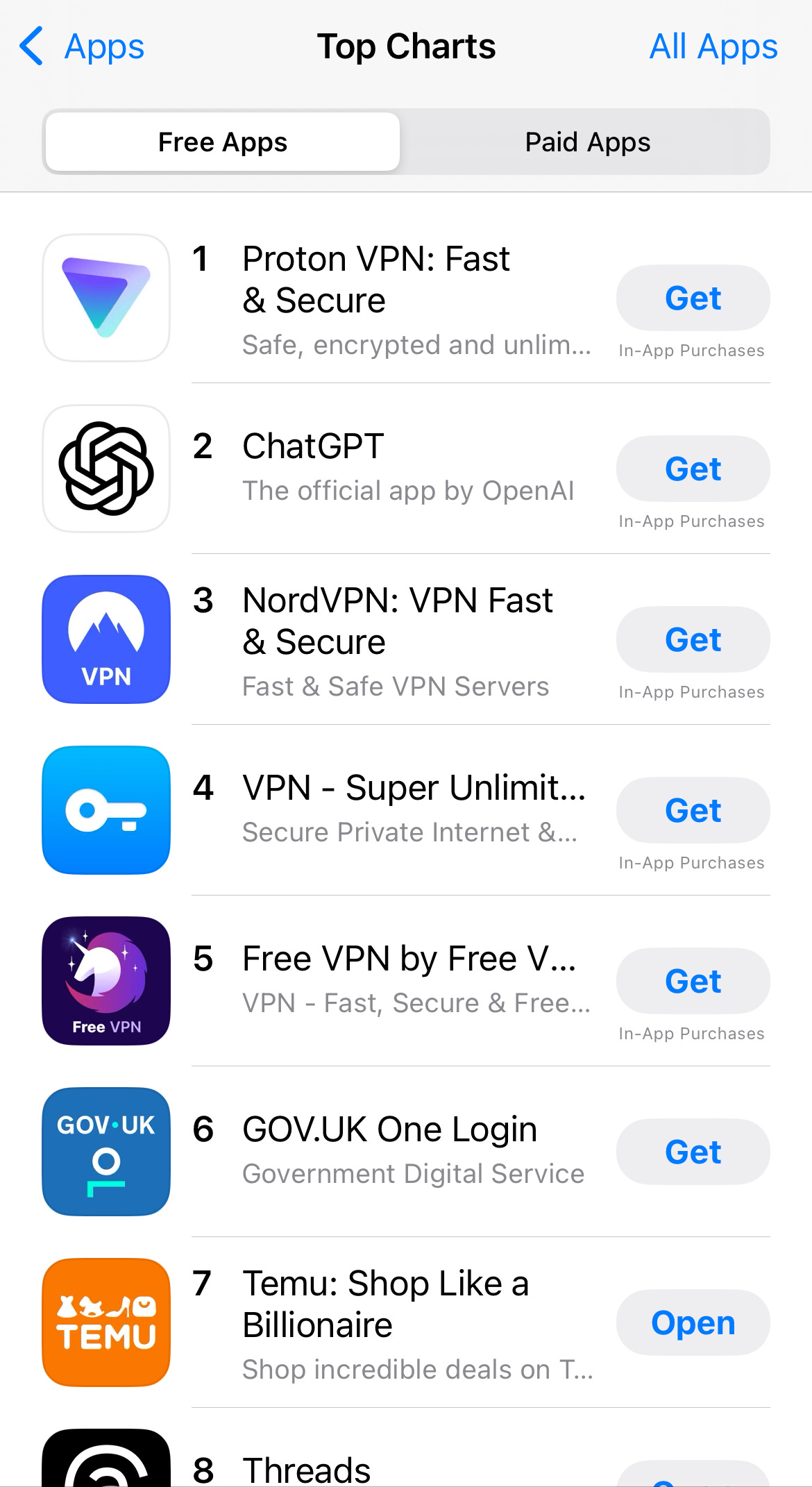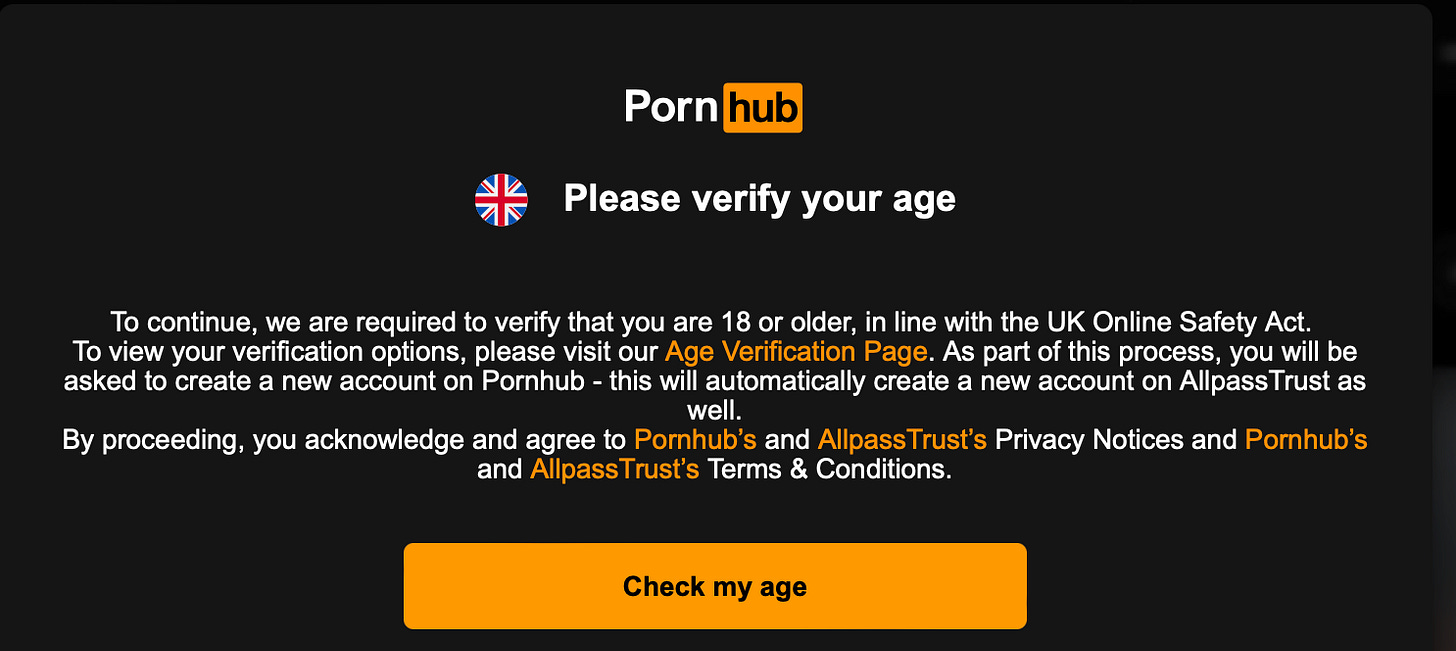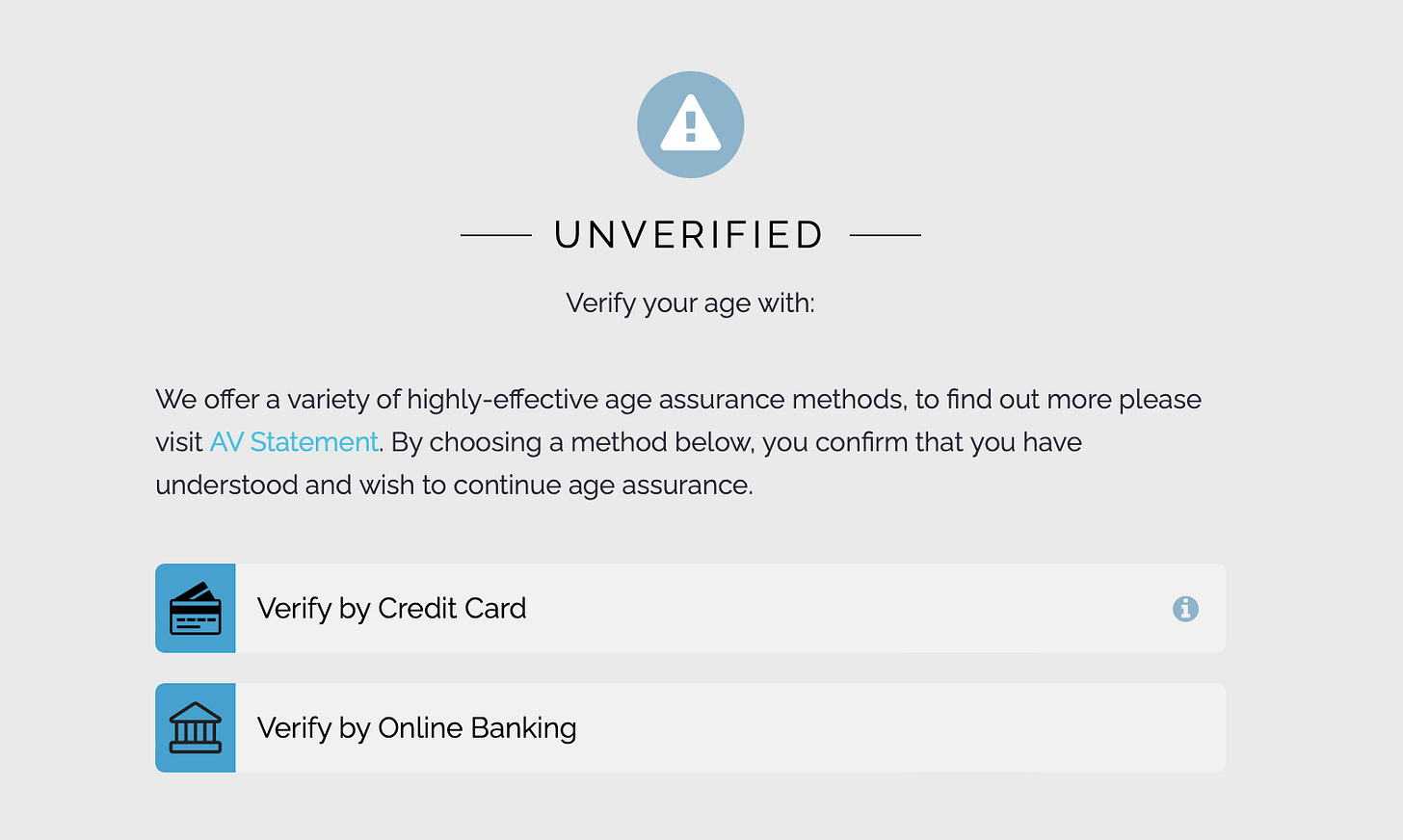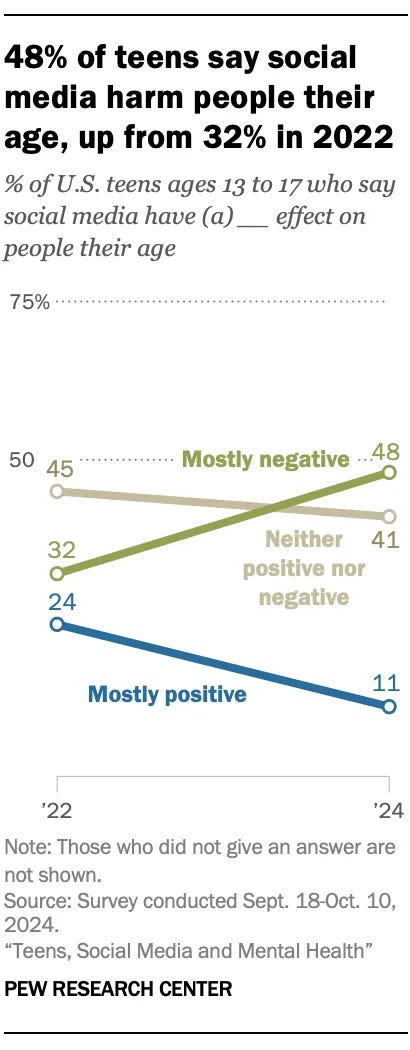It's a great time to be a VPN
The age-controlled internet is here and U.K. teens aren't having any of it
Britain has gone VPN crazy. Or more specifically British teens are crazy for VPNs.
A VPN is a tool which creates a virtual private network that hides a user’s online identity and location, and they now dominate Apple’s U.K. app chart…
Entertainment apps haven’t been displaced because Gen A and Z are suddenly obsessed with identity theft. It’s because the U.K. government is trying to protect under 18s from harmful online content, but teens are saying ‘nice try old people we’ll hack our way through the backdoor’.

While on the one hand it is highly amusing to watch high schoolers use a free and widely available product to make a mockery of the new legislation. But on the other it’s deeply depressing that nation states are so powerless against big tech that it’s almost impossible for them to comprehensively protect kids from predatory platforms and algorithms that spread dangerous content, sow division and send users down rabbit holes. Some even argue that young people will end up in even murkier corners of the internet now that they’re armed with a VPN.
To understand how this all became such a hot mess let’s rewind to last Friday when more than 6,000 websites and apps that host porn, self-harm, suicide, and eating disorder content had to verify that their users in the U.K. were over 18. The new regulations are part of the Online Safety Act which also requires online services to protect children from dangerous stunts or challenges, misogynistic, violent, hateful or abusive material, and online bullying.
It means that anyone in the U.K. trying to access the world’s largest porn site, Pornhub, now sees this screen…
To prove that a user is over 18 some sites deploy facial recognition technology but in Pornhub’s case they ask for credit card or online banking details via a third party, AllpassTrust…
Once verified, a user is then able to access Pornhub. To avoid those time-consuming and privacy-invading steps many downloaded a VPN and set their location to another country.
While the new law adds substantial friction to everyone using the internet in Britain, a significant majority of adults were in favour of the changes and 70 per cent said they want social media firms to do more to tackle harmful content.
The overwhelming desire for action follows tragic cases like that of Molly Russell who took her own life aged 14 while suffering depression. During an inquest a judge ruled that self-harm and suicide content that she consumed on Instagram and Pinterest contributed to her death.
While most agree that something should be done to prevent another Molly from dying, few agree on what that something should be. And since the implementation of the Online Safety Act critics have slammed it for being too broad, blamed it for the closure of niche sites and activists on the left and right have warned that free speech could be threatened.
Polling conducted after age verification was brought in however shows that a significant majority of the public are still in support with 69 per cent in favour of the new rules. That’s good news for lawmakers around the world who are doggedly pursuing their own experimental efforts to protect children. In December Australia will impose the world’s first social media ban for children under 16, and Ireland just added age checks for websites that host video.
Teens may find ways to outsmart the measures but that doesn’t mean that harm won’t be reduced. Interestingly some platforms, including a pro-suicide site and the social media platform Gab, have chosen to leave the U.K. market all together. They follow Pornhub which stopped operating in France and in more than a dozen American states after age verification measures were put in place.
Removing a platform from a market could be considered an extreme response but given the penalties for non compliance it can also be seen as a reasonable reaction. Fines of up to £18/$24 million or 10 per cent of global revenues, whichever is greater, can be imposed on those that flout the new laws.
It puts big tech, with all their resources and deep pockets, at a distinct advantage over smaller companies, which is deeply ironic considering the role they’ve played in creating the problem the new laws aim to solve.
For all the downsides, and the arguments that the measures are intrusive, it’s worth remembering that young people increasingly tell us that they’ve had negative experiences because of social media.
The New Britain Project and More in Common recently reported that 62 per cent of 16 to 24 year old Brits believe social media does more harm than good to young people. Four in five said they’d try to keep their own children off social media for as long as possible.
In America, Pew Research found that almost half of 13 to 17 year olds say that the platforms have a “mostly negative” effect on people their age, up from 32 per cent three years ago. Just 11 per cent say it’s “mostly positive”, down from 24 per cent in 2022.
While it’s hard not to see the new regulations as a bit of a joke right now, at least they’re something. A first draft. A start. A chance to see what’s actually effective, what’s not and what unintended consequences are created. Isn’t that the least we can do for young people?
What do you think about the age-controlled internet and the efficacy of the new laws? Let me know in the comments.
highly flammable is produced and written by me, Rachel Richardson
I’m a content creator, commentator and a consultant for hire at Beginning, Middle and End
Want more? Check out Threads, Twitter/X and Instagram.
Say hello at rr@bmend.com








If only our globalization could work in our favor this one time! If all countries had the same age verification then the power of a VPN is eroded. Naturally a country like the US will be the last to implement which depresses me to no end.
I'm definitely in favour of trying to protect children from the general shittiness as much as possible, although I am concerned it could be a slippery slope civil liberties wise... hopefully not.